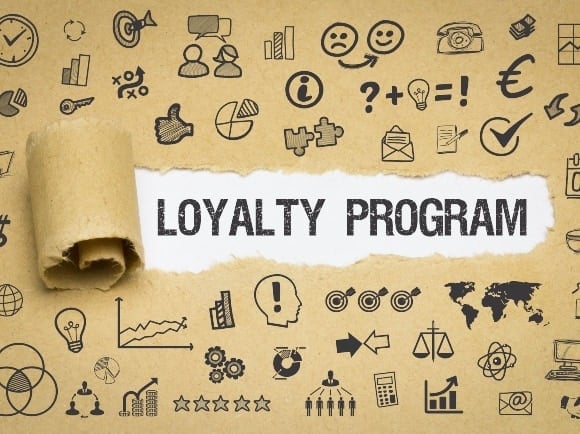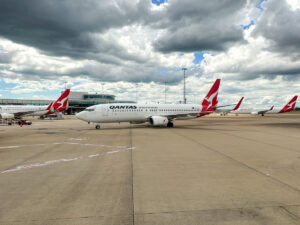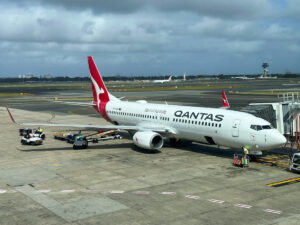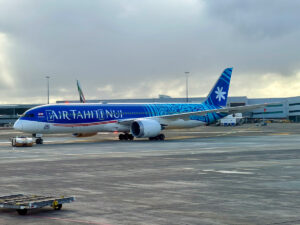
The Australian Frequent Flyer made a detailed submission to the ACCC’s loyalty schemes inquiry in September.
The ACCC’s recommendations relate to consumer issues, as well as the data practices of loyalty programs in Australia. Here is a summary of the main recommendations…
Better communication about the expiry of points
The ACCC has called on loyalty programs to make a number of changes in the way they communicate information about the program, as well as program changes, to members.
Loyalty programs should ensure warnings about the imminent expiry of points are “sufficiently prominent and appropriately targeted”. Agreeing with AFF’s recommendation, the ACCC wrote that “the subject line of any email notification about the approaching expiry of point balances might include a statement similar to ‘Your points are about to expire’.”
Qantas points expire after 18 months of account inactivity, but the airline provides an opportunity to reinstate expired Qantas points. Meanwhile, Velocity Frequent Flyer points expire after 24 months of account inactivity.
Better transparency about the availability of reward seats
The ACCC says that frequent flyer programs should “consider disclosing any particular routes, or corresponding seasons, or classes of travel on a route, where ‘free’ seats are not available”. Consumers have a right to know if Classic Flight Reward or Reward Seat availability is not being released on certain routes and travel classes, as this could influence their decision to earn points in the first place. Along with excessive carrier charges, a lack of reward seat availability is a key frustration of frequent flyers.
The report notes:
If redemption opportunities are too limited, they have the potential to undermine the consumer benefits of participation in the loyalty scheme.
The ACCC also notes the AFF’s suggestion that frequent flyer operators disclose the total number of ‘free’ seats that are available on each route, and in each class of travel—at least in the aggregate. The ACCC considers that it is reasonable for frequent flyer operators to consider disclosing if they offer any particular routes, or corresponding seasons, or classes of travel on a route, where ‘free’ seats are not available. Such disclosure may also tend to highlight the difference between this type of reward and other rewards (e.g. ‘Points Plus Pay’ in the case of Qantas), which may help ensure greater transparency by operators and thereby reduce the risk of consumers conflating these different reward types.
Unilateral program changes could be unfair
The report talks about frequent flyer programs that make unilateral changes that reduce the value of members’ existing points, saying:
While the ACCC recognises that loyalty scheme operators may sometimes have a legitimate business interest to reduce the redemptive value of loyalty points, it considers that unilateral reductions are detrimental for consumers and in some cases potentially unfair. Relevant matters for operators to consider before devaluing points include the timeliness and prominence of any advance notice, whether members have been offered any remedy (e.g. a one-off increase in their point balance prior to devaluation), and the motivation for the change.
American Express and Qantas, which have both made changes that reduced the value of points this year, responded to the ACCC.
In its response, Amex justified the April 2019 changes by saying that it had not previously made changes to overall redemption rates in over a decade, gave four months’ notice and “ran a range of promotions during the notice period allowing customers to transfer and redeem points at superior redemption rates”.
Qantas submitted that “it is in the legitimate interest of the loyalty program operator and the consumer to allow change to occur – provided that members are given adequate notice of changes”. Qantas gave three months’ notice prior to its September 2019 changes, which is the minimum notice required by the Qantas Frequent Flyer program terms & conditions.
Prohibition against unfair contract terms
Unfair contract terms are already voidable under Australian Consumer Law. However, the ACCC wants to ban unfair contract terms altogether. It has also called for certain unfair trading practices to be outlawed.
Ending the practice of automatically linking loyalty accounts with payment cards
The ACCC has specifically called on Flybuys and Woolworths Rewards to end the practice of linking members’ loyalty accounts with their debit and credit cards. Under the current practices, supermarkets can collect data about your shopping habits even if you don’t scan your loyalty card.
Improvements to data practices
The ACCC believes that loyalty programs need to give consumers more meaningful control over how their data is used.
“Privacy policies of the loyalty schemes examined in this report are opaque and consumers are often unable to make informed choices about, and have limited control over, the collection, use and disclosure of their data,” the report said.
The report also calls for reforms to Australian privacy law.
Better communication around booking classes
The ACCC concluded that booking classes, and the effect this has on the earn rate of frequent flyer points, should be displayed more prominently in the booking process. In particular, airlines should better educate consumers on the difference between booking classes and how this affects the earning rate on partner airlines and affiliates.
In our view, it is unacceptable that neither Qantas nor Virgin Australia currently display the fare class being booked on their websites. This information is important to consumers and should not be hidden.
More transparency on carrier charges
On the issue of carrier charges imposed by airlines when redeeming points for a reward flight, the report says:
There is no doubt that many consumers consider the imposition of carrier charges to be unexpected, detrimental and somewhat arbitrary in nature, and the ACCC remains concerned about the extent to which relevant airlines inform consumers about these charges. In particular, the ACCC remains concerned that airlines imposing carrier charges are failing to adequately inform consumers redeeming points to obtain flights about either the existence or the quantum of carrier charges that apply.
Airlines that impose carrier charges should consider how to improve their communication of information about the existence and quantum of carrier charges that apply when redeeming points to obtain flights.
As we noted in our submission, Qantas Frequent Flyer should publish a public list of the carrier charges that apply to Qantas reward flights, as Virgin Australia already does. (We’ve published a list of Qantas carrier charges on our website, in the absence of an official list from Qantas.)
The airline should also stopping hiding the amount of taxes and carrier charges payable on its website to frequent flyers that don’t already have enough points to make that particular booking. There is no reason this information should not be displayed when a member makes a “dummy booking” on the Qantas website.
In its response, Qantas said that it is making changes to its website. It also rebutted that “taxes and carrier charges are displayed prominently in all marketing material promoting points redemption opportunities to a particular destination”.
Price discrimination could cause “real consumer harm”
The ACCC also identifies price discrimination, particularly by airlines, as an emerging issue. It is concerned that this could cause “real consumer harm if individual consumers were to be charged inflated prices based on profiling derived from their data”. The report notes:
Concerns have been raised that airlines could use personalised pricing to offer higher ticket prices to customers less likely to be deterred by fare increases, such as business travellers or consumers with limited travel dates, with one hypothetical example raised of a consumer who might have looked up an obituary online and then searches for a flight to a city to attend the funeral.
Join the discussion on the Australian Frequent Flyer forum: ACCC slams loyalty schemes













































































